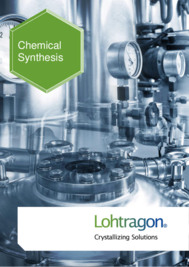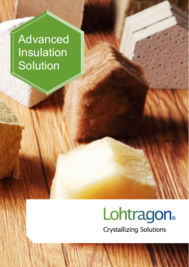
Lohtragon® series are optimized to serve as catalysts with optimized:

Catalytic converters for emission control in internal combustion engine (ICE) vehicles are one of the most popular applications for metal catalysts.
They convert the toxic emissions from combustion engines, mainly carbon monoxide, nitrogen oxides and unburned hydrocarbons, into harmless substances such as carbon dioxide, nitrogen and water. While platinum, palladium and rhodium are effective catalysts, Lohtragon® metal salts – typically based on cations like Copper, Iron, Magnesium, Calcium and Strontium – act as activators. In combination with thermally degradable organic anions such as Acetates, Citrates, Formates, or Oxalates these are ideal for thermal deposition and the manufacturing of catalyst systems.
Case Study: Lohtragon® K19 - A Precursor in High-Performance Wash Coats
Utilizing Lohtragon® K19 | based on Magnesium Acetate as a precursor resulted in enhanced performance of the wash coat and leading to more efficient and stable catalysts. This was attributed to the optimal physicochemical properties of Lohtragon® K19, positioning it as a preferable precursor in developing high-performance wash coats for catalysts.
Polyisocyanurate (PIR) hard foam is a type of rigid foam insulation known for its exceptional thermal performance and fire-resistant properties. It is widely used in the construction industry for insulating walls, roofs, and floors in both residential and commercial buildings.
The choice of catalyst in the production process depends on the specific PIR foam formulation, desired foam properties, and processing requirements. The catalyst plays a crucial role in controlling the rate of trimerization, foam expansion, and the physical properties of the final PIR foam product.
Case Study Lohtragon® O02 - Enhanced Reaction Control & Consistency
The integration of Lohtragon® O02 and its related aqueous solution Lohtragon® O52 based on Potassium Acetate as a catalyst showcased significant advantages, including enhanced control over reaction kinetics, leading to improved foam structure and properties.
It also reduced side reactions and production inconsistencies associated with conventional catalysts. These benefits confirmed Potassium Acetate’s superiority as a catalyst in producing high-quality PIR hard foam, leading to optimized manufacturing processes and superior end products.
Find our more in our info sheet PIR Foam Production.


The coagulation process of latex is a critical step in rubber production, converting the liquid latex into a form that can be easily processed and used in a wide range of applications, including tires, rubber gloves, rubber bands, and many other rubber products. The choice of coagulation method and subsequent processing steps can influence the properties of the final rubber material.
Case Study Lohtragon® O43 – Meet High Standards for Electrical Safety Glove Production
Electrical safety gloves are high quality products. As severe injuries or danger to life may occur due to material failure, very tight standards have to be fulfilled. Lohtragon® O43 | based on Calcium Nitrate suits the demands of this particular area of emulsion polymerization of latex.
Case Study Lohtragon® B68 - High-Quality Latex Production with Nitrate-Free Control
The introduction of Lohtragon® B68 | based on Calcium Formate as a nitrate-free additive resulted in excellent control over the polymerization process, maintaining emulsion stability and producing high-quality latex. Additionally, the absence of nitrates addressed environmental and safety concerns, making Calcium Formate a viable and advantageous option for producing eco-friendly latex via emulsion polymerization.
Transesterification, a standard reaction in organic chemistry, is also related to many industrial processes. An example of such transesterification is the synthesis of biodiesel from agriculturally produced oils and methanol for which metal salt catalysts are used. High load PET tyre cords for aeronautic industry are made by transesterification processes.
Case Study – Lohtragon® Showcase Enhanced Efficiency & Control in Transesterification
Lohtragon® K19, Lohtragon® K02 and Lohtragon® O56: Dedicated polyesters and polyethers are still not accessible through the direct synthesis of suitable acids with alcohols. For these applications we offer a wide range of transesterification catalysts. Using Lohtragon® K19 | Magnesium Acetate, Lohtragon® K02 | Copper Acetate or Lohtragon® O56 | Zinc Acetate in transesterification processes demonstrated significant advantages, including enhanced reaction rates, higher yields, better control over the reaction conditions, reduced saponification side reactions, and were easier to recover and recycle compared to conventional catalysts, underscoring their suitability and efficiency in transesterification processes.
In a world striving for sustainability and efficiency, metal salts as catalysts are not just an option; they are a necessity. If you are in the market for reliable, efficient, and eco-friendly catalysts, check out our Lohtragon® products.




Calcium
Iron
Magnesium
Zinc
Aluminium
Ammonium
Copper
Potassium
Sample Request
Product Finder
Contact